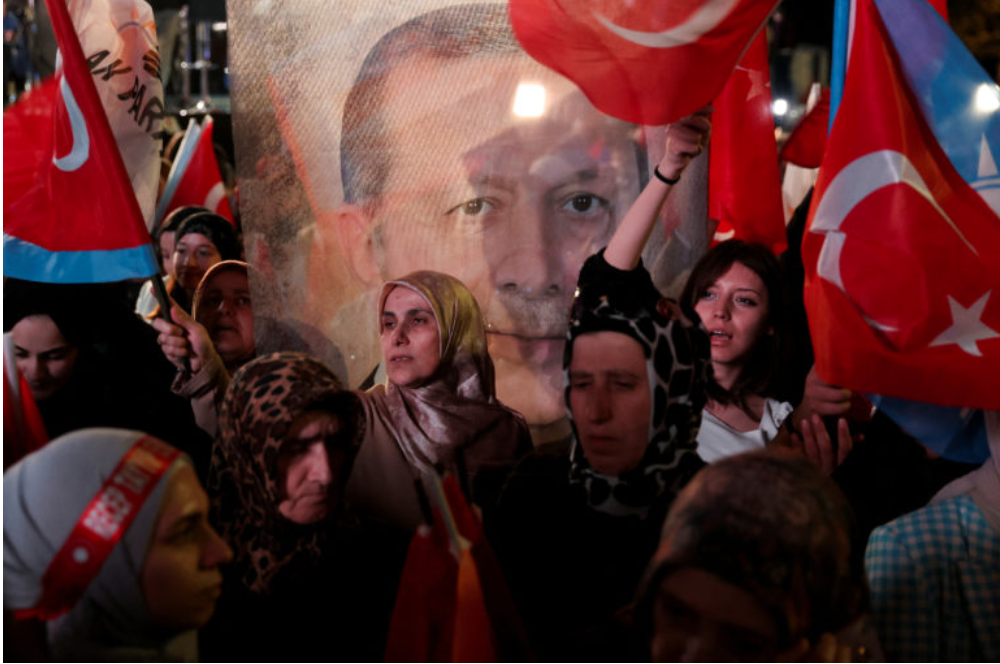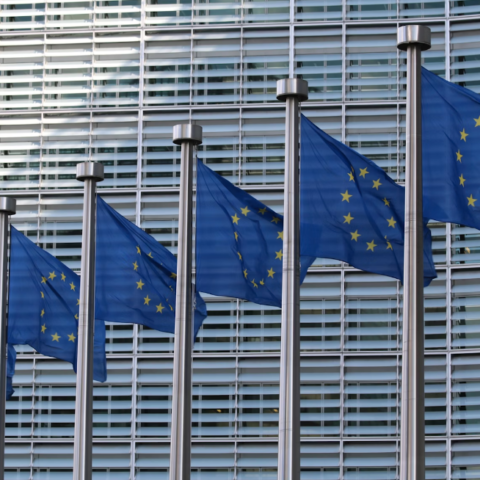By Sarah Maher

Both Turkey and the United States boast republic and democratic government systems. While both countries offer the constitutional right for citizens to vote, there is a large disparity when it comes to the number of people who actively participate in elections, Turkey often has an exponentially higher turnout rate, with 80% of its population voting in mayoral elections. Where does the United States fall short when it comes to democratic participation and what lessons can be learned from a country with such a high turnout?
There has been an abundance of research into the factors contributing to the lack of attendance at the polls in the U.S. A significant finding is there are certain groups which are historically underrepresented each election cycle. Voter turnout is historically lower among college students, especially in the United States (Neimi and Hanmer). For example, Athens-Clarke County, the home city of the University of Georgia (UGA), has a large proportion of college students. In 2021, UGA students comprised 30% of the Athens-Clarke County population (Athens-Clarke County Unified Government). During the most recent Presidential Preference Primary in March 2024, participation among college students was dismal with Clarke County reportin on only 11% turnout (The Red & Black). This phenomenon contributes to an overall low level of political efficacy both in Athens-Clarke County and across the country. Two barriers thatmay hinder college students from exercising their right to vote are residency and identification requirements. Legal ambiguities about residency requirements have led to confusion among students and voting officials. This has resulted in inconsistencies in procedures for registration across the U.S. Some districts require identification with a current address or a utility bill, both of which are nearly impossible to produce while living in student housing (Hanmer and Jackson).
In contrast, Turkey has not experienced the same low turnout rate for college-aged citizens. In the 2015 elections, 18-30 year olds made up around 30% of the electorate, while the United States typically experiences . Kayaoğlu (2016) finds that higher levels of youth education greatly contributes to Turkey’s large voter turnout. Turkey also excels in voter mobilization, as inaccessible polling places are made attainable through intrinsic interpersonal compassion, with citizens carrying their peers with disabilities to vote.
Another factor that contributes greatly to the low turnout rate in the U.S. is the presence of systemic barriers that disproportionately affect BIPOC communities. The gap between the voting rates of white and non-white eligible voters has grown from 6.3% in 2020 to 8.6% in 2022 (Brennan Center). The factors perpetuating this gap include the passage of restrictive voting bills in recent years across the country, including the Georgia S.B. 202, which prevents “line relief” and imposes training requirements for poll watchers and stricter voter ID requirements for voters (GPB). One reason the impact of voting laws is disproportionate is the lack of language access for voters with low English proficiency, who may be unable to complete a ballot application correctly and completely. Emly Previti, PBS writes that in 2020, Pennsylvania housed over 110,000 people eligible to vote but had limited English proficiency (WHYY PBS). Similarly, this population may be more likely to have their ballots rejected because of their low English proficiency or have trouble registering to vote initially. Together, all of these barriers lead to greater political discouragement and perpetuate a cycle of political apathy among BIPOC communities.
Turkey’s high level of political participation is somewhat of an anomaly, as democracy prevails in the face of authoritarianism. Currently, the Justice and Development Party (AKP) has consistently held power, and even still, citizens support the opposing party – the Republican People’s Party – despite the odds being against them. Since coming into power in 2002, the AKP has held and won parliamentary elections to keep its officials in power. The AKP’s values are closely intertwined with religion, often prevalent through its political decisions (Yeşlida). Turkey’s democratic system, in this way, is far from perfect. Its citizens have experienced intimidation at polling places and government delegitimization of opposing parties. Despite these challenges, Turkish voters continue to identify with and turn out for opposing parties.
One outstanding difference between Turkey and the United States is that Turkish citizens experience fewer voting barriers, and their citizens accept the results of democratic elections (Alliance for Securing Democracy). The resulting controversy from the 2022 United States elections is something Turkish citizens haven’t experienced and is a clear indicator of the relative democratic health of both countries. While Turkey hasn’t been immune to political turmoil, its elections have remained free in ballot applications, polling place availability, and language access. When examining Turkish voter participation in the 2011 parliamentary election, Akarca and Tansel found that more names on the ballot reduced voter turnout, and Turkey’s millennial population voted at significantly higher levels than the millennial population of Western countries like the United States. They also found that voters who find the parties on the ballot difficult to identify with are much less likely to vote. One could argue that this may be the case in the United States. Overall, Turkey’s citizens may feel a great level of identification with the parties on the ballot and not experience the same gap in the millennial voter population as the United States.
So, what lessons can be learned from proven practices in Turkey to increase voter turnout in the US? One major takeaway is that there must be more legislation to remove long-standing barriers to participating in our democratic system. This could be done by offering applications and voting information in multiple languages and increasing the number of polling places in communities with disproportionate access. Furthermore, creating straightforward registration and absentee voting processes consistent across the country is essential.
The right and ability to vote is paramount to civil liberties in any country, and its diminishment threatens the future of democratic systems. Turkey’s astonishing election turnout offers some insight into how to increase participation in the United States. Increasing accessibility for each citizen and standardized election procedures are paramount to bringing voters out to the polls.
Photo Credit: https://www.aljazeera.com/news/2023/5/15/turkeys-election-likely-heading-to-run-off-erdogan-has-the-edge

